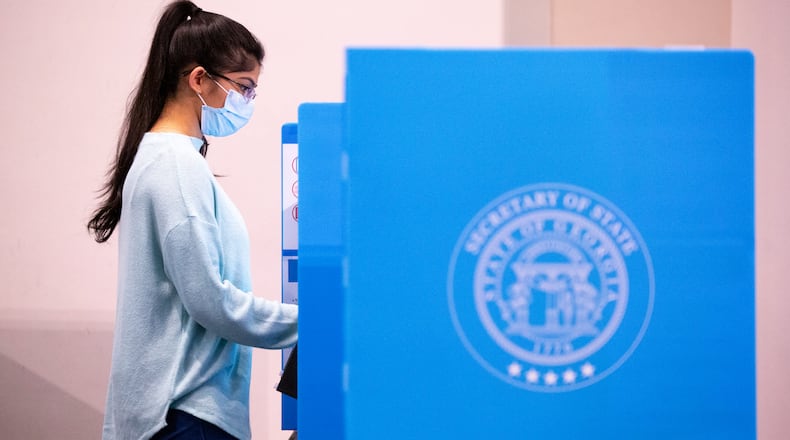With all precincts reporting but some absentee and advance in-person votes yet to be counted, Gwinnett voters appeared to narrowly defeat a transit referendum and elect Democrats in nearly every local race in the former Republican stronghold.
It marks the first time in more than 30 years Democrats will be in power in the county. The transit referendum would be the second defeated in just a year and a half.
The apparent blue wave would oust the incumbent District Attorney, Republican Danny Porter, and the sitting tax commissioner, Republican Richard Steele. It also looked like Republican school board member Carole Boyce would lose her seat, though Republican Mary Kay Murphy was holding on to hers by a thin margin.
Murphy would be the only Republican to win at the county level this election cycle if she holds on.
Turnout bested 70%, with more than 408,000 voters casting ballots. Nearly 5,000 absentee and provisional ballots remain to be counted.
In the sheriff’s race, Democrat Keybo Taylor was leading Republican Lou Solis. Sheriff Butch Conway, a Republican, declined to seek reelection.
Democrat Nicole Love Hendrickson appeared to beat Republican David Post in the chairman’s race for the county commission. Republican Charlotte Nash declined to run for another term.
And two other Republican Commissioners, Jace Brooks and Tommy Hunter, also decided this would be their last term. In the District 1 race, Republican Laurie McClain trailed Democrat Kirkland Carden, while the District 3 race pitted Republican Ben Archer against Democrat Jasper Watkins. Watkins had the lead.
The District Attorney, Porter, trailed Democrat Patsy Austin-Gatson. And tax commissioner Steele was losing to Tiffany Porter, a Democrat.
Democrat Tiana Garner ran unopposed to be the clerk of Superior Court.
On the school board, Boyce was losing to Democrat Karen Watkins in District 1, while Murphy led Democrat Tanisha Banks in District 3. Democrat Tarece Johnson was unopposed in District 5, but George Puicar waged a write-in campaign.
Voters looked likely to extend a special purpose tax for education.
About the Author
The Latest
Featured



